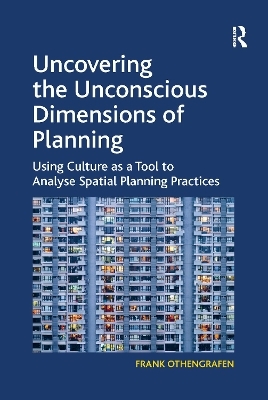
Uncovering the Unconscious Dimensions of Planning
Routledge (Verlag)
978-1-138-24886-1 (ISBN)
Frank Othengrafen, HafenCity University Hamburg, Germany
Contents: Preface; Introduction: why study planning culture? Planning culture as a determinant of planning practices; Part I The Conceptual Framework for Analysing Cultures: Spatial planning and development in Europe: the importance of cultural contexts; Contemporary spatial planning models and the absence of culture; Culture as an organising category: how to analyse culture and its impact on planning systematically?; The interpretative framework: a general outline for the analysis of planning practices. Part II Empirical Studies of Planning Practice: Planning culture in Hamburg, Germany: between thoroughness, uncertainty avoidance and commercial pragmatism; Planning cultures in Helsinki, Finland: local autonomy, romantic rural views and social justice; Synopsis of the empirical results and an evaluation of the interpretative framework. Part III Generalisation of the Results - Deduction of a Theoretical Model for the Systematic Analysis of Planning Cultures: The 'culturised planning model': a tool to analyse the taken-for-granted routines and perceptions underlying planning practices; Conclusions: reflections on the culturised planning model; References; Index.
| Erscheinungsdatum | 07.09.2016 |
|---|---|
| Verlagsort | London |
| Sprache | englisch |
| Maße | 156 x 234 mm |
| Gewicht | 340 g |
| Themenwelt | Naturwissenschaften ► Biologie ► Ökologie / Naturschutz |
| Naturwissenschaften ► Geowissenschaften ► Geografie / Kartografie | |
| Recht / Steuern ► Allgemeines / Lexika | |
| Recht / Steuern ► EU / Internationales Recht | |
| Sozialwissenschaften ► Soziologie | |
| ISBN-10 | 1-138-24886-X / 113824886X |
| ISBN-13 | 978-1-138-24886-1 / 9781138248861 |
| Zustand | Neuware |
| Haben Sie eine Frage zum Produkt? |
aus dem Bereich


